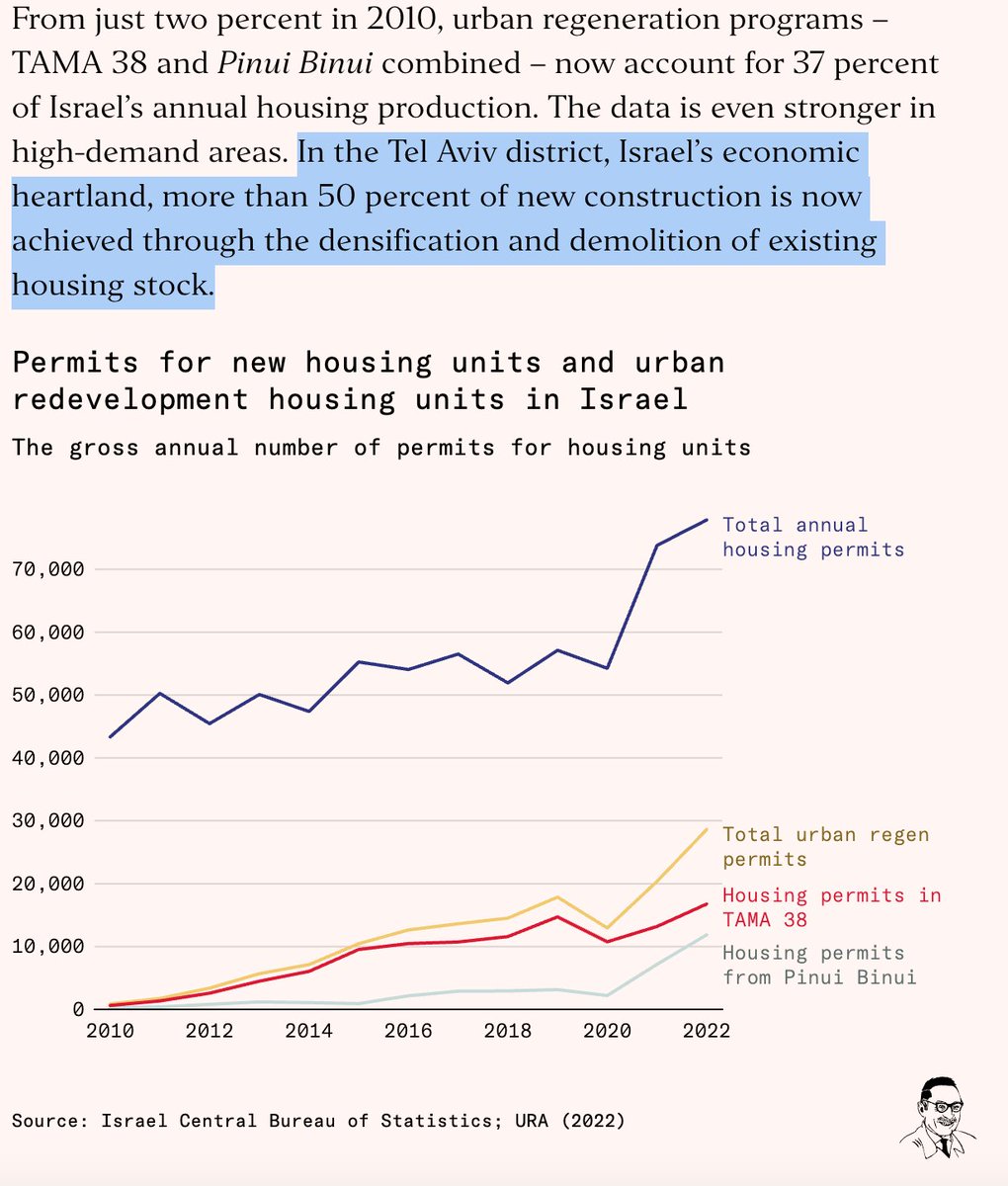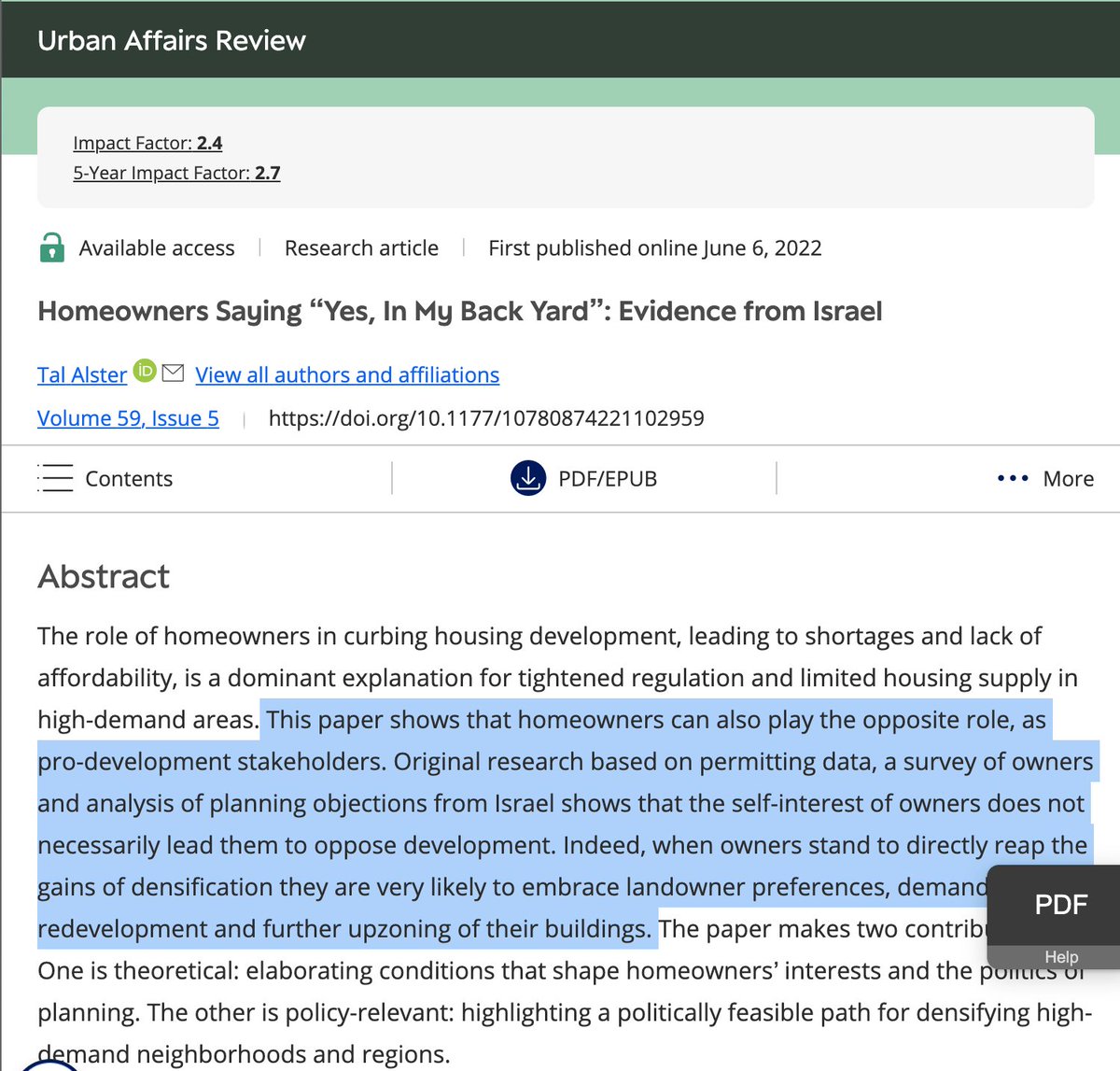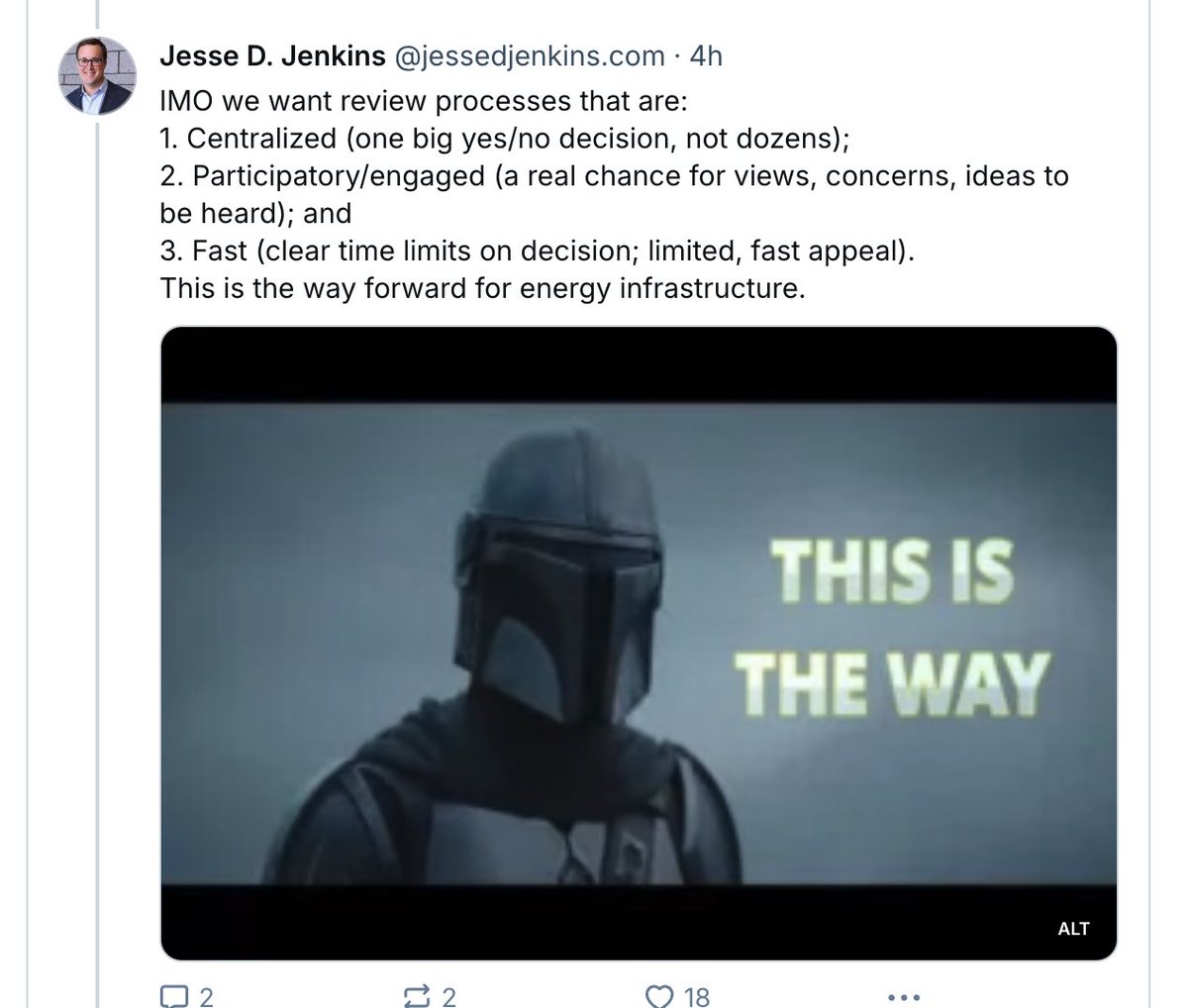Had a great chat yesterday w/ Tal Alster about Israel's TAMA 38 program and potential extensions to SFH -> plex projects in the U.S.
🧵/17
🧵/17

TAMA 38 authorizes condo HOAs, by supermajority vote, to contract w/ developer to redevelop their building as a larger building w/ more units.
- owners each get a bigger/nicer/safer condo, and money to pay for temporary housing
- developer profits from the added units
/2
- owners each get a bigger/nicer/safer condo, and money to pay for temporary housing
- developer profits from the added units
/2
Program is hugely successful:
- more than 50% of new housing in Tel Aviv is built thru redevelopment of existing stock
- condo owners have become political supporters of densification
/3

- more than 50% of new housing in Tel Aviv is built thru redevelopment of existing stock
- condo owners have become political supporters of densification
/3


What makes the program work? Seems to be a combo of:
- exemption from "betterment tax" on improvements
- a condo market in which presales are conventional (condo owners aren't freaked out by idea of contracting for a unit that does not exist)
/4
- exemption from "betterment tax" on improvements
- a condo market in which presales are conventional (condo owners aren't freaked out by idea of contracting for a unit that does not exist)
/4
- insurance that protects condo owners if developer does not perform (Tal was a little uncertain about how this insurance market is structured & whether the gov't provides guarantees)
/5
/5
I would love to see a Yimby org -- or a student group in a transactional law clinic -- dig into question of what tax code, insurance, and other reforms would be needed to make similar market function in U.S.
/6
/6
I suspect that few U.S. condo buildings would be economical to tear down and rebuild as larger condo buildings -- but there are probably lots of older SFHs in inner suburbs that could feasibly be torn down and rebuilt as, say, 3-10 unit townhome & condo projects.
/7
/7
The politics of "plexification" of SFH neighborhoods would surely be a lot easier if many such projects were TAMA-38-like deals enabling an older homeowner to "retire into a condo" on the site of their former home.
/8
/8
Evidencing the good politics: a version of this idea was floated in San Francisco a few years back and got raves from the reps elected from homeowner-heavy districts.
Read @hknightsf's story about it,
/9sfchronicle.com/sf/bayarea/hea…
Read @hknightsf's story about it,
/9sfchronicle.com/sf/bayarea/hea…
But, predictably, the S.F. proposal was a Rube Goldberg contraption that envisioned philanthropies, nonprofits, homeowners, & city government jointly orchestrating a flow of "BMR condos" on existing SFH sites.
Yeah, right.
/10
Yeah, right.
/10

Let's figure out the plain-bagel version.
Hard-headed lawyers, architects, accountants, builders: what policies need to change?
- Prop 13 / Prop 19 reform?
- reform of IRS tax-deferred exchange rules?
- condo defect liability?
- condo pre-sale rules?
/12
Hard-headed lawyers, architects, accountants, builders: what policies need to change?
- Prop 13 / Prop 19 reform?
- reform of IRS tax-deferred exchange rules?
- condo defect liability?
- condo pre-sale rules?
/12
- insurance, including against risk of developer's failure to perform?
/13
/13
Tax policy should probably be neutral as between homeowner contracting to exchange property for:
(1) future unit + temporary relocation payments (the TAMA 38 model),
vs
(2) cash + option to purchase or right of first refusal on future unit
/14
(1) future unit + temporary relocation payments (the TAMA 38 model),
vs
(2) cash + option to purchase or right of first refusal on future unit
/14
The latter transaction structure would put more of the risk of nonperformance on the developer, and would probably be more attractive to homeowners in markets where condo presales are rare.
If homeowner doesn't like the finished product, they should be allowed...
/15
If homeowner doesn't like the finished product, they should be allowed...
/15
to "exchange" their cash from the sale into a new home elsewhere.
/16
/16
The emergence of this market would be a boon to folks who lost their home in L.A. wildfires...and to many other homeowners in the wider world beyond.
@markasaurus @kookie13 @cayimby @jenny_schuetz @CohenSite @k_thos @WorksInProgMag @salimfurth
/end
@markasaurus @kookie13 @cayimby @jenny_schuetz @CohenSite @k_thos @WorksInProgMag @salimfurth
/end
https://x.com/CSElmendorf/status/1884999865908019475
@OldUrbanist @ebwhamilton @mnolangray @s8mb @bswud @andersem @michaeldlane @BenTMetcalf @hansriemer @EconCharlie @greg_shill
@threadreaderapp unroll
• • •
Missing some Tweet in this thread? You can try to
force a refresh
















